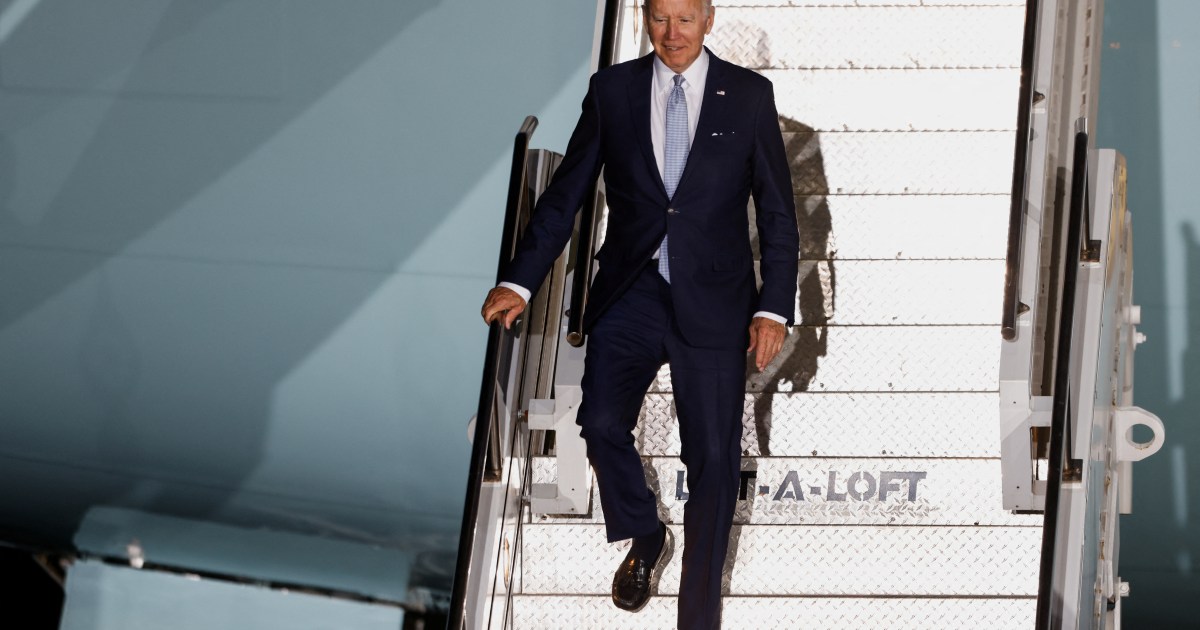Britain, the United States, Canada and Japan will ban imports of Russian gold as part of new sanctions against Moscow in response to its invasion of Ukraine, the British government announced Sunday on the first day of the G7 summit.
British Prime Minister Boris Johnson, who is meeting leaders of the major industrialized countries in Germany for 3 days, said that "these measures will directly hit the wealthy of Russian power, and target the heart of Putin's war machine."
"Putin is wasting his dwindling resources on this barbaric and futile war, he is feeding his vanity at the expense of the Ukrainian and Russian people," Johnson said in a statement, stressing that "we must dry up the sources of funding for the Putin regime, this is what we are doing with our allies."
Russia's exports (one of the world's largest producers of yellow metal) amounted to about 15 billion euros in 2021, according to Downing Street.
New penalties
The British government confirmed that excluding gold from the London markets (an important financial center for the trade of raw materials) would have a "significant impact on Putin's ability to raise funds."
She added that this would harm especially Russian elites, who could buy gold "in an attempt to circumvent Western sanctions." A senior US administration official confirmed to Reuters that the official announcement of the decision will be on Tuesday.
But these measures only concern gold mined recently in Russia, not gold obtained before the embargo was imposed.
The United Kingdom has imposed the toughest Western sanctions on Russia since it began invading Ukraine four months ago, targeting the financial sector, oil and dozens of Russian power-riches, representing more than 100 entities and 1,000 people.
G7 leaders meeting
The leaders of the Group of Seven (France, the United States, the United Kingdom, Germany, Italy, Canada and Japan) will meet from Sunday at Elmau Castle in the southern German province of Bavaria for a 3-day summit, followed by a meeting of the North Atlantic Treaty Organization (NATO) in Madrid, at a time when The world is in crisis, from the war in Ukraine to the climate to food security.
The charming location of Elmau Castle, not far from the Austrian border, will provide the leaders of the seven countries with the possibility to take beautiful pictures, but it will not forget the world's multiple crises that it is currently experiencing.
Continuing support for Ukraine - whose territory the Russian attack has entered its fifth month - will be at the heart of the G7 meeting, as well as at the top of the agenda of a two-day NATO summit in Madrid starting on June 28.
German Chancellor Olaf Scholz - whose country is hosting the G7 summit this week - reminded that supporting Ukraine would require "perseverance because we are still far" from peace negotiations between Kyiv and Moscow.
For his part, NATO Secretary General Jens Stoltenberg warned that the war in Ukraine could last "years".
In turn, a senior White House official stressed that the G7 summit should come up with "a set of concrete proposals to increase pressure on Russia and demonstrate our collective support for Ukraine."
The official did not specify in detail these possible measures, while Western countries have previously taken decisions on several aspects of sanctions against the regime of Russian President Vladimir Putin.
On the eve of the summit, British Prime Minister Boris Johnson called on the leaders of the Group of Seven not to "abandon Ukraine", warning against any "slackening" in support of Kyiv, and announced additional economic aid to it.
However, the White House denied the existence of any Western inaction in this regard, and Pentagon spokesman John Kirby said, "We have not seen cracks and fissures" within the Atlantic Alliance.
It is expected that the significant reduction in gas shipments by Moscow, which, according to Westerners, aims to cause an energy crisis in Europe before a winter that will likely be tense, will be at the top of the discussion agenda, starting on Sunday.
Global price hike
The leaders of the seven countries will start their talks with a session on the global economy, which suffers from accelerating inflation linked, in particular, to the rise in energy and food prices.
The participation of Indonesia, India, Senegal, South Africa and Argentina - emerging economies particularly vulnerable to food shortages and the climate crisis - at the summit aims to forge common responses to these challenges.
Climate actors also expect tangible progress from the G7, including "planning" to phase out fossil fuels completely.
The sessions will be complemented by bilateral meetings, starting this Sunday morning with a meeting between German Olaf Schultz and Joe Biden, each of whom faces difficult situations in his country.
The German chancellor has seen a drop in his popularity in recent months due to his lack of strong support for Kiev, and he is counting on the G7 to polish his image in Germany and abroad.
As for Biden, he faces a more divided America after the Supreme Court challenged the right to abortion, in a country that suffers from severe high rates of inflation.
His French counterpart Emmanuel Macron failed a week ago to obtain an absolute majority, and he will have to deal with other parties, in an unprecedented commitment for him.
Johnson, weakened by the Partygate scandal, has seen his party lose two seats in a by-election and appears to be in trouble.

